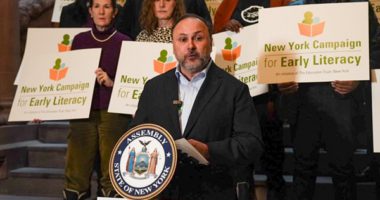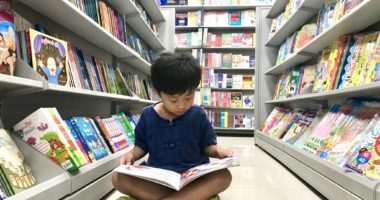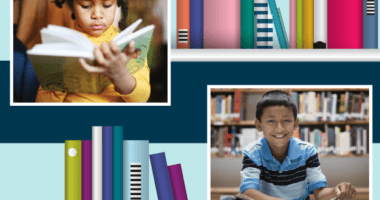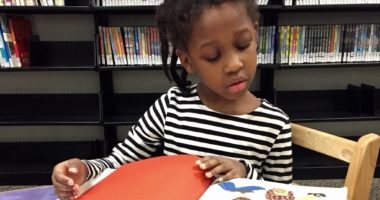Profiles in Education Equity: Byron Johns, Co-Founder, Black & Brown Coalition for Educational Equity and Excellence
Byron A. Johns is the co-founder of the Black and Brown Coalition for Educational Equity and Excellence (BBC), working with Identity, a Latino advocacy organization, to dismantle systemic barriers that disadvantage Black, Latino children and children from low-income backgrounds. He also serves as the education chair for the Montgomery County, Maryland, branch of the NAACP and leads the NAACP Parents’ Council, recruiting and leading representatives in each of the district’s 211 schools to advocate for Black and other students of color to have equal educational opportunities. At the state level, Johns is a former member of the Maryland Coalition to Reform School Discipline in collaboration with ACLU, Open Society Institute, Advocates for Children & Youth, MD Disability Law Center, Office of the Public Defender, resulting in passage of several bills improving the welfare of Maryland’s children. In 2021, he received the Roscoe Nix Distinguished Community Leadership Award — Montgomery County’s version of the Presidential Medal of Honor — in recognition for his career of service and for his work in launching the Black and Brown Coalition.
What does education equity mean to you?
My personal view is education equity means addressing and advocating for solutions to the barriers that adversely affect students and families — especially those from Black, Brown, and low-income communities — from achieving to their fullest potential and all the benefits of a high-quality public education. We must address systemic issues through uplifting and shifting policies, practices, contracts, and culture at the district level, and work to empower parents and caregivers to advocate for their children more effectively at the school level.
Why is early literacy for students of color so important to education equity?
There are several reasons the BBC has focused advocacy on early literacy. In Montgomery County Public Schools (MCPS), 2 out of 3 Black preschoolers and 3 out of 4 Latino preschoolers are not kindergarten-ready when they start formal schooling. Reading is the foundational skill for all other subjects, which is why schools teach children to “learn to read” from kindergarten to third grade and “read to learn” after third grade. With so many children starting school with a deficit in learning skills, it is all the more important that resource investments and more effective methods in teaching children how to read in the early years be one of the district’s highest priorities.
What do you think is the most pressing education equity issue right now? How can advocates address this challenge?
In addition to the endemic issues that have existed for decades, there are several pressing issues that have come to the forefront during the COVID-19 pandemic recovery. The most pressing are:
- A mental health crisis among students and school staff
- Elevated levels of absenteeism and disengagement, especially among the most vulnerable groups
- Fiscal pressures due to inflation and the imminent end of federal funding for pandemic recovery
- The acknowledgement that previous widely accepted pedagogy conflicted with known brain science and did not work for significant numbers of students, thus calling for a rapid retooling of educational methods to adopt and adapt the Science of Reading and Math practices and curriculum
To address these challenges, advocacy is needed to:
- Ensure that resource cuts and reallocations are equitable
- Elevate educational funding priorities at the local, state, and federal levels
- Demand resources and accountability for programs that effectively support struggling students, especially the underserved
- Leverage the relationships and credibility of advocates in the communities we serve to connect and reengage students and families to the schools and support services available throughout the county
How has the education landscape changed since you started this work?
While the landscape has changed in some ways, the challenges remain similar in nature. What I can say for sure is that my awareness and understanding of the issues and solutions has evolved over the last 15 years. I started out focusing on empowering parents and caregivers — a bottom-up strategy. What I realized over time is that the names would change, but the problems were the same. Hence, the problems were systemic. I needed to also understand and develop top-down strategies that dismantled those systemic barriers.
What (or who) motivates you to advocate for education equity?
While my mother and father were my first role models and set the importance of education for me, it was becoming a parent to my son and daughter that awakened and motivated me to become an advocate for education equity — not only for my children, but for children and their families that may not have the ability or social capital to advocate for themselves.
What’s your favorite quote and why?
These are three of my favorite quotes and spoke to me at different levels of my life’s journey:
“Education is the most powerful weapon which you can use to change the world.” —Nelson Mandela
“Give a man a fish and you feed him for a day; teach a man to fish and you feed him for a lifetime.” —Maimonides
“The more that you read, the more things you will know, the more that you learn, the more places you’ll go.” —Dr. Seuss
Share one big success from your work to date.
During the COVID-19 pandemic while schools were virtual, I led a public/private partnership working with MCPS, private childcare providers, and public/private funders to serve students with Educational Equity Hubs, which support low-income students by providing safe, supervised, technology enabled in-person learning facilities and make virtual learning effective for our most vulnerable students. This model was adapted to continue with supports when the district reopened, but individual schools experienced rolling quarantines and shutdowns.
We also recently hosted a community forum in late 2023, which focused on improving literacy and increasing resources and targeted interventions to close the disparities we’re seeing in student outcomes. More than 800 attendees showed up, and our data points, advocacy priorities, and testimonies were all presented in both English and Spanish to accommodate the community members present and get them engaged on this key education equity issue.
What’s next regarding your work?
The challenge going forward is building capacity and infrastructure for sustained advocacy. The issues we’re tackling are persistent, adaptive, and pernicious — much like a virus. The educational systems we are challenging are large bureaucracies with entrenched stakeholders who are deeply invested in the status quo. Thus, disrupting and dismantling the existing power structures is a long-term endeavor.





